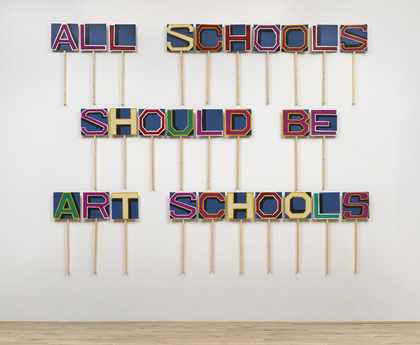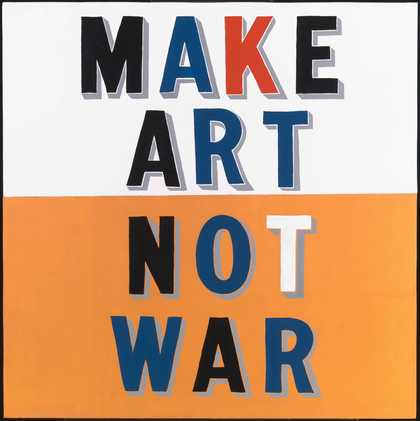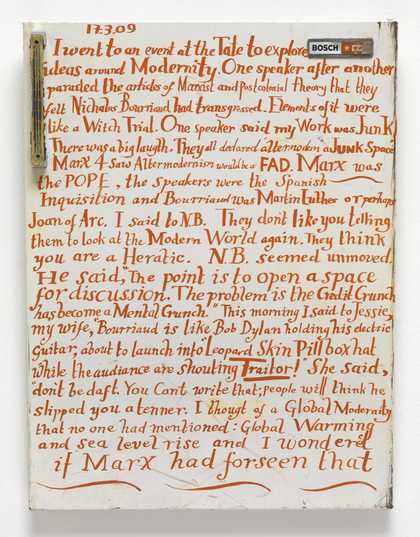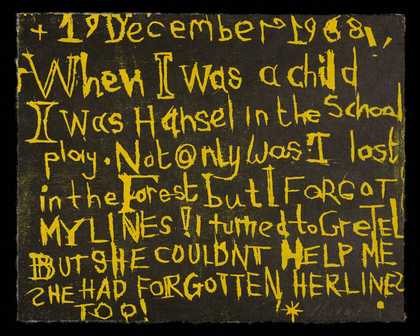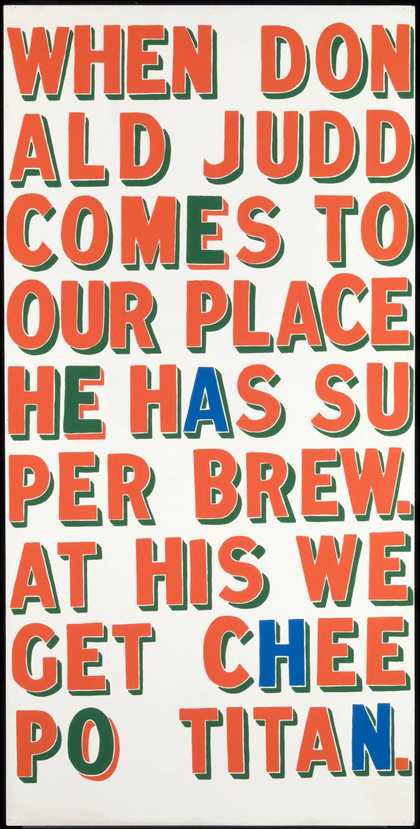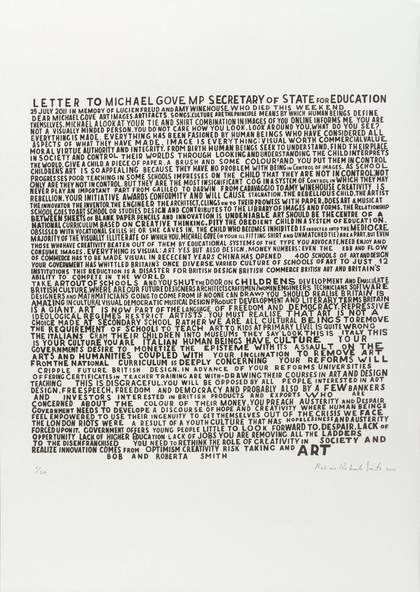So Make Art Not War comes from a story that my dad told me and I want to tell you that story. Well it’s not really a story, it’s a statement that he said to me. He went to art school, but it was in the 1930’s and he had to go off and fight fascism. And he was blown up in the battle of Monte Casino. But the battlefield surgeons managed to stitch his body back together again… but he did die quite a young man in his 60’s, early 60’s, and on his deathbed he said to me “make art, not war”. It comes from an idea about signage which I have done and I still continue to do, which is they are kind of props in a performance really and they are telling people what to do. Of course you can choose not to do the thing but I think every morning we wake up and decide whether we are going to kind of hold the world together or we are going to wreck it and I think it is good to try and hold the world together and make art and do creative things rather than do destructive things. And then this piece is called When Donald Judd Comes to Our Place and it says 'when Donald Judd comes to our place he has Super Brew, at his we get cheepo Titan' and it’s sort of saying that when Donald Judd comes to our place we give him a high quality, high alcohol lager but when we go to his place he gives us two per cent cheapo lager and I suppose it is sort of chipping away at the mythology of the artist really. I actually love Donald Judd but I sort of think the mythology of Donald Judd is kind of doing things right and putting everything into your art whereas my art has always been mortgaged to my family, my house and all the other things in my life, so I am trying to make art out of all the arbitrary things that are happening around me really. Paintings are painted with signwriter’s paint, using signwriter’s brushes on the household gloss primed boards. The thing that I really enjoy out of it is that it is very straightforward and workmanlike and based on the principles of signwriting which I am sort of still a complete novice at really but I enjoy the fact that you might have rules and then you might want to break them or just ignore them or sometimes adhere to them. And I like the idea in a painting, it’s a formal thing, it’s to do with the properties of the painting itself rather than to do with any kind of idea behind it really specifically but I like the idea that the font is an Edwardian kind of font dating from 1910 or 1920 but the colours are very modern, they are sort of orange and turquoise and green and so they are kind of at odds with the history of the font really. And I quite like the arbitrary juxtaposition of two unrelated sorts of things really. So I am not sure what I specifically want the audience to think when they see these. I would like them to think if they were a younger kid or child or something that they could think them absolutely straight; that Donald Judd does come to our house and we do give him cheap beer or we give him more expensive beer than we get if we go to his house or that they must go out and make art not war. But I think on reflection they are more about thinking about language and how we speak to each other in stories and slogans and we should inspect that really. Politicians are always telling us to specific sorts of things and they wrap that up in a slogan or a little homily and I think we should unpack all that and roll it out and see it for what it really is and I think it is important not to take language for granted, really.

